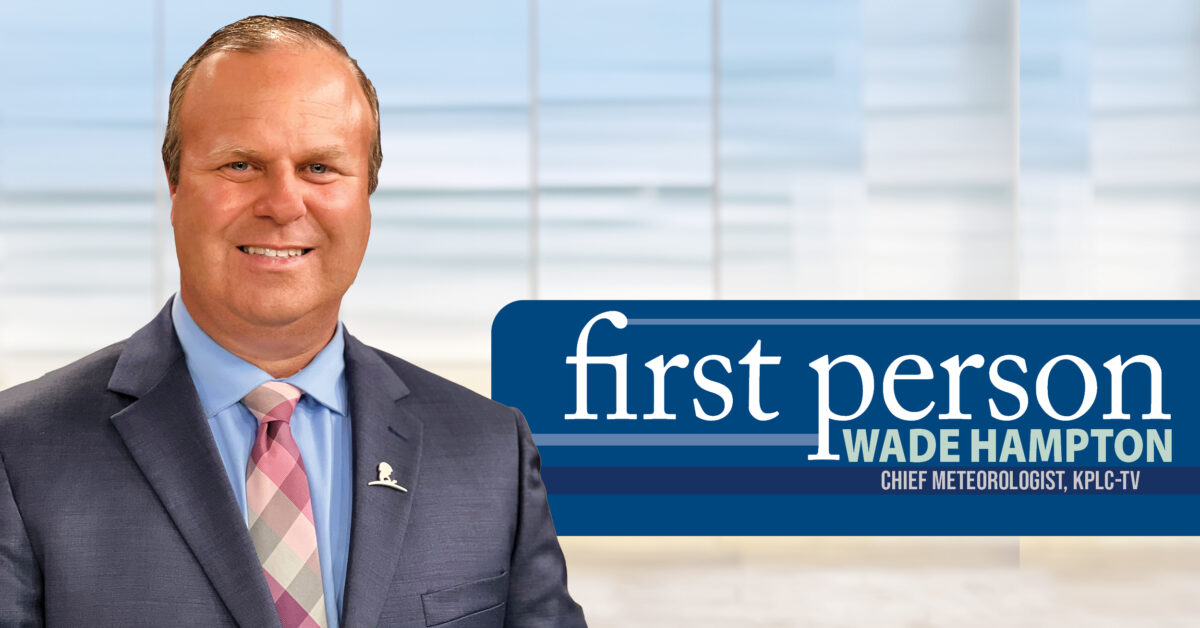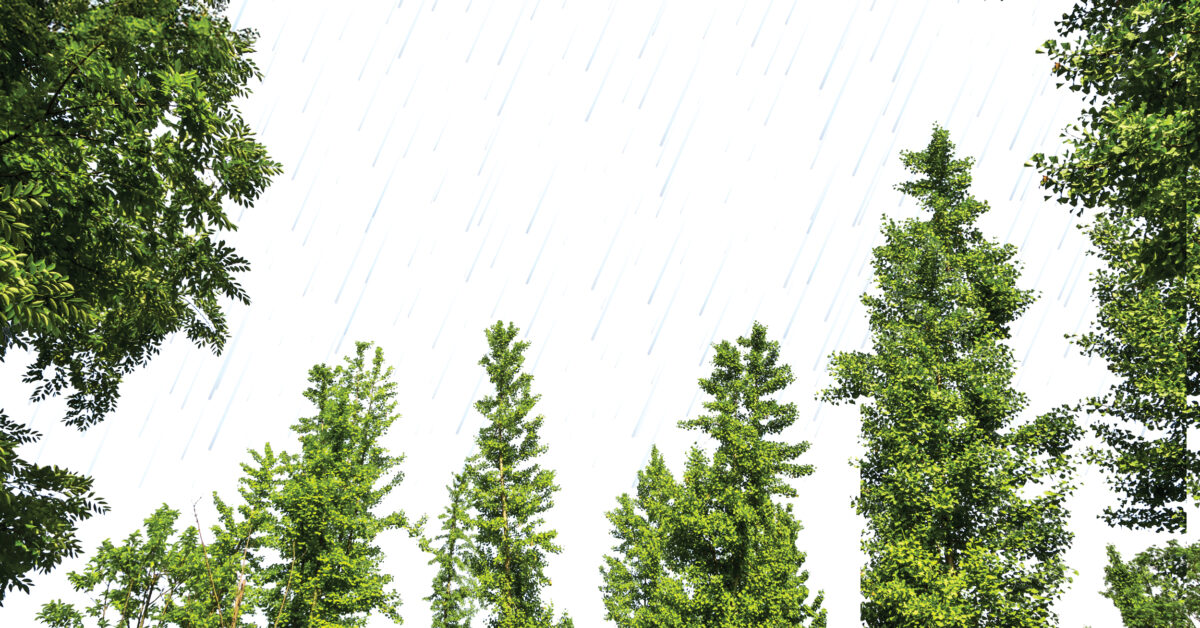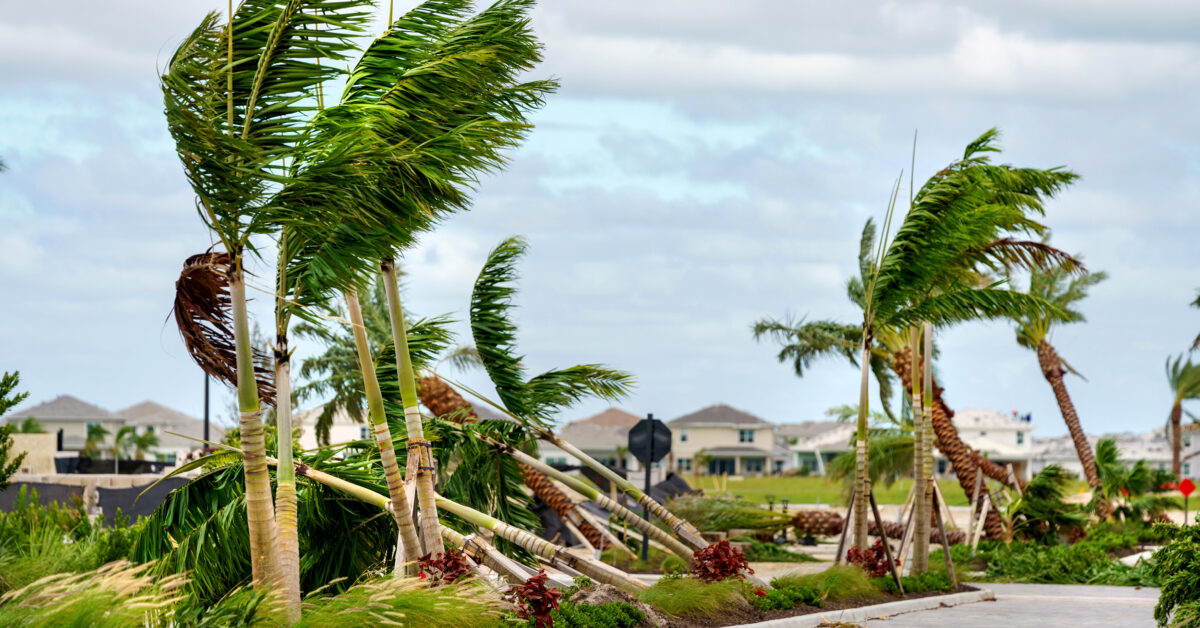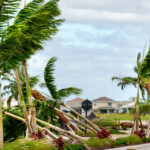
Russian Roulette: HURRICANE EDITION – What To Expect During The 2025 Season
June 2025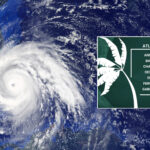
Hurricane XYZ: The History Of The Hurricane Naming System
June 2025Wade Hampton is widely known in SWLA as a steady presence in the face of severe weather as chief meteorologist for local TV station KPLC. After all, he will have been forecasting the weather here for 20 years come August. A native of Arcadia, Florida, Hampton holds a bachelor’s degree from Florida State University in meteorology. Thrive spoke with him on his passion for meteorology and advice for the 2025 hurricane season.
What sparked your love for meteorology?
I grew up in a rural area of Florida where there are more orange trees and cows than people. My dad was a mechanic and worked on farms. I was exposed to the weather by working with him. But my bigger inspiration was our hunting camp in the Everglades in south Florida where I was outside and in the weather.
I’ve known since the fourth grade that I wanted to forecast weather. I grew up watching our local station, WTVT. The chief meteorologist, Roy Leep, had been on television for about 30 years then. My parents watched the station, so I grew up watching it. Later I would intern there.
How did you settle on being a TV meteorologist?
Desoto County is very similar to Beauregard Parish in size and population. Everyone goes to the same school. The guidance counselors knew my interests and there were a limited number of schools I could go to in the area and not every university offered a meteorology program. The counselors advised me to go to the local community college and then transfer later to Florida State University since they’d seen kids go to the big city and fail because of culture shock. The first summer I was there, I contacted WTVT in Tampa. Their weekend meteorologist said they offer internships for college credit, so I became an intern. When I transferred to Florida State, I interned there once again. That decided it for me—that I would work in TV.
I like the idea that if somebody is watching, wherever they are, they understand what the forecast is going to be based on what I’m saying. I don’t like having to cover severe weather, but an app can’t tell you a tornado is going to hit on a certain road. The most rewarding part of the job is warning people about imminent danger and hoping they heed said warning.
Your first meteorology job was in Wyoming. How did you end up working somewhere with weather so different from Florida?
I’d never been out of the state of Florida except once. I’d never seen snow before. It was quite the culture shock. Back then it was harder for someone out of college to get hired on. Employers wanted experience. I wanted to stay in Florida, but the more I applied, the more I realized it most likely was not going to happen. I got a call from KCWY in Casper, Wyoming. It was a brand-new station that had never been on the air. When I arrived, they were still putting together desks in the news room. I was the first meteorologist on that TV station. I saw weather I’d never seen before, such as severe winds without storms or a hurricane involved.
What initiated your move to KPLC?
People on air work on contract. When contracts are up, that’s when people start looking for new jobs. The year before my contract was up, in 2004, my hometown was hit by Hurricane Charley. I decided I wanted to be closer to home, and I was interested in tropical weather and warmer temperatures. There was an opening at KPLC, and I started in August 2005. Six weeks later Hurricane Rita hit. I’d never had first-hand experience with a hurricane until I came here because Florida had been in a “hurricane drought” until the mid-1990s.
What was it like experiencing a hurricane so soon after starting your new job?
It was trial by fire for sure. I was the new guy, so I never expected to be the one on TV explaining everything. 24 hours before the hurricane hit, the company decided that we were not going to stay at the station due to the threat of flooding and the danger of the tower falling. We moved to CHRISTUS St. Patrick Hospital and brought our computers along. I was a pretty good whiz with the computer, something I’d learning during my internship in Florida, so I assisted with graphics. I also helped the station get equipment moved from Division Street to CHRISTUS. It was a logistical nightmare.
Many meteorologists come and go. What’s kept you at KPLC and in SWLA for so long?
I’ve moved up in the station itself. I started out doing the weekend forecast. Then I did the morning shift for over a year before I was promoted to chief meteorologist in 2008. It would have to be the perfect job for me to leave. I’ve lived here longer than anywhere else in my life. I have friends here … people I consider family. My girlfriend is here. The company, Gray Media, is a good company and the station is a great station. And it’s hard to beat the food in SWLA. I love it here. It is home.
Be prepared starting June 1st. Know what you would do if something were to happen. Know the risks wherever you are. Cameron Parish has to worry about storm surge. In DeRidder, it would be flash flooding from rain. All of Southwest Louisiana would have the wind danger that comes with hurricanes and potential tornados.
Know where to evacuate. It you have kids, try to make it fun and say you’re visiting whoever it is. I’m not saying everyone has to evacuate for every storm, but if you don’t, have everything you need to be self-sufficient.
How do you keep a level head when forecasting for a possible hurricane landfall in SWLA?
Growing up watching WTVT, their meteorologists were always cool and calm no matter what the weather was. You don’t want to get agitated because that doesn’t help the viewer. If they see me freaking out, their fears are going to grow even worse. There’s a way to voice our fears without instilling fear.
Thoughts on the 2025 hurricane forecast?
It doesn’t matter how many hurricanes there are. You should be prepared regardless of whether it’s an above or below normal season. 1992 was a below normal season. The first hurricane didn’t form until late August. That was Hurricane Andrew and it hit Florida and later Louisiana. If a hurricane hits here, it’s a bad year. If one doesn’t hit here, it’s a good year for us. The numbers don’t necessarily mean a higher risk. If all hurricanes stay in the Atlantic, great!



